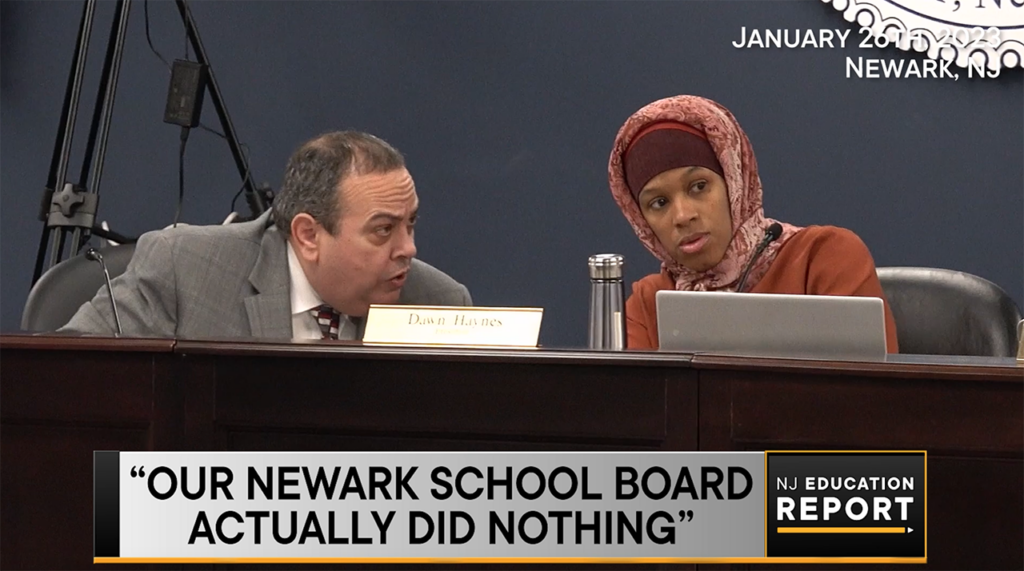
Great Oaks Legacy Charter School Collaborates with Nork! Project To Encourage a Sense of Community
May 16, 2023
Newark Superintendent Is Busy Hanging Blue Ribbons and Sabotaging Our Children
May 17, 2023As Students Struggle, New Coalition Is Pushing the Murphy Administration To Put Literacy First
Paula White, the Executive Director of JerseyCAN, the non-profit focused on education advocacy, is launching a new collaboration called the New Jersey Legacy of Literacy (NJLL) Coalition. The goal is to address a big problem in the state’s school system: there is no oversight of how we teach reading, leaving teachers, students, and families without the proper support to implement effective instruction. The result? In some urban districts less than 10% of students read at grade-level; statewide it’s only 58%. Given the pandemic-induced learning loss suffered by students, particularly low-income ones, there’s never been a more urgent time to improve the way we teach reading.
The first step for NJLL is focused on three districts that struggle with effective reading instruction: Newark, Camden, and Asbury Park, where NJLL will offer free screenings of Levar Burton’s film called “Right to Read.” (Click here to sign up.)
More broadly, the Coalition will be urging Governor Phil Murphy, the New Jersey State Legislature, and the New Jersey Department of Education (NJDOE) to adopt a high-quality statewide plan that addresses literacy in every public school in the state instead of the “wild west” of reading instruction students currently endure. “Education is a social contract with families,” White told me, “and we are committed to ensuring New Jersey is held accountable to parents and students for raising the level of reading proficiency.”
This means mandating every district adopt research-proven methods that actually teach children to read. “When I first came to JerseyCAN,” White said, “I was really concerned about literacy but now the whole issue has exploded. While New Jersey considers the selection of a reading program a local decision, we need to have incentives or mandates to push districts in the right direction. Right now too many students aren’t learning how to read.”
White explains there are five levers that inform NJLL’s strategy:
- Science of Reading (SOR) training
- Teacher Preparation programs aligned to SOR
- Universal Screener to identify students’ entry point along the continuum of reading
- Notification to Parents of Students identified with reading deficiencies
- District adoption of high-quality instructional materials
The first four of these levers would require legislative bills. One would mandate that teachers have the tools to teach reading using a science of reading approach, which focuses on phonemic awareness. A corollary to that bill would be one that requires our teacher preparation programs to adequately train aspiring teachers in the science of reading. A universal screener bill would serve children at risk of not learning to read and require districts to take action. Of the parent notification bill, White explained,
If a child is in third grade and not reading at grade level, parents need to be notified because they may be seeing A’s and B’s on report cards and think all is fine. There is such a sense of urgency to this work, especially when you have districts like Asbury Park where not a single third-grader is meeting grade-level expectations. Parents need to know, ‘my child is in third grade but can she read appropriately?’
The final lever—district adoption of high-quality instructional materials—would require the state department of education to create a list of curricula that will ensure teachers who are trained have the curriculum they need so they don’t have to piece it together on their own.
“Teaching students to read should be an unwavering professional pursuit informed by evidence and a track record of success,” explains White, “not based on a popularity contest of which teaching method is preferred or currently in vogue. If a light is not shined on this issue and strategically addressed in Trenton, we will rob many in this generation of New Jersey’s public school students of a viable future.”




